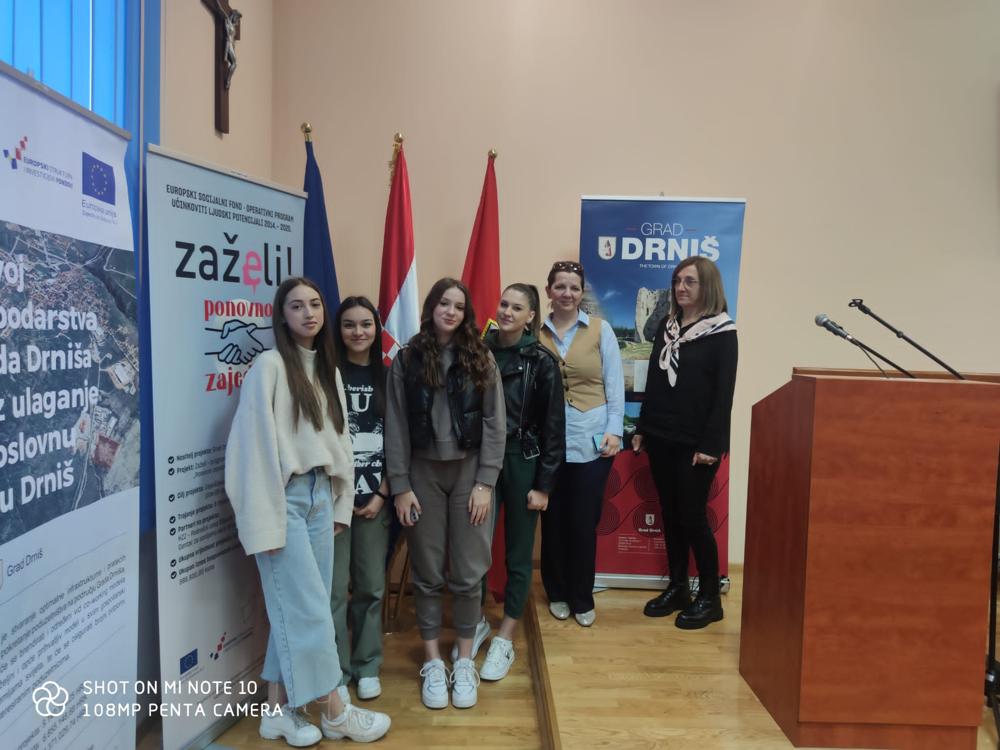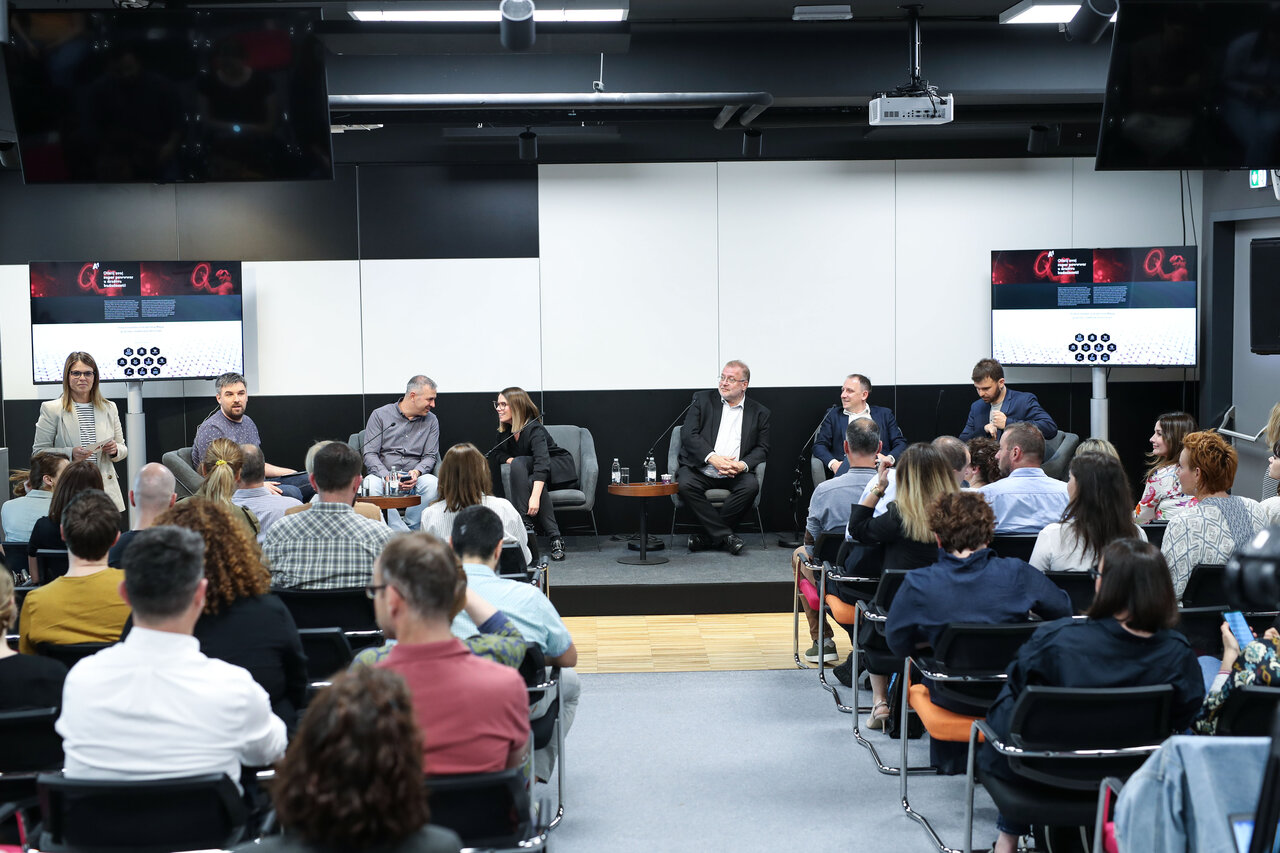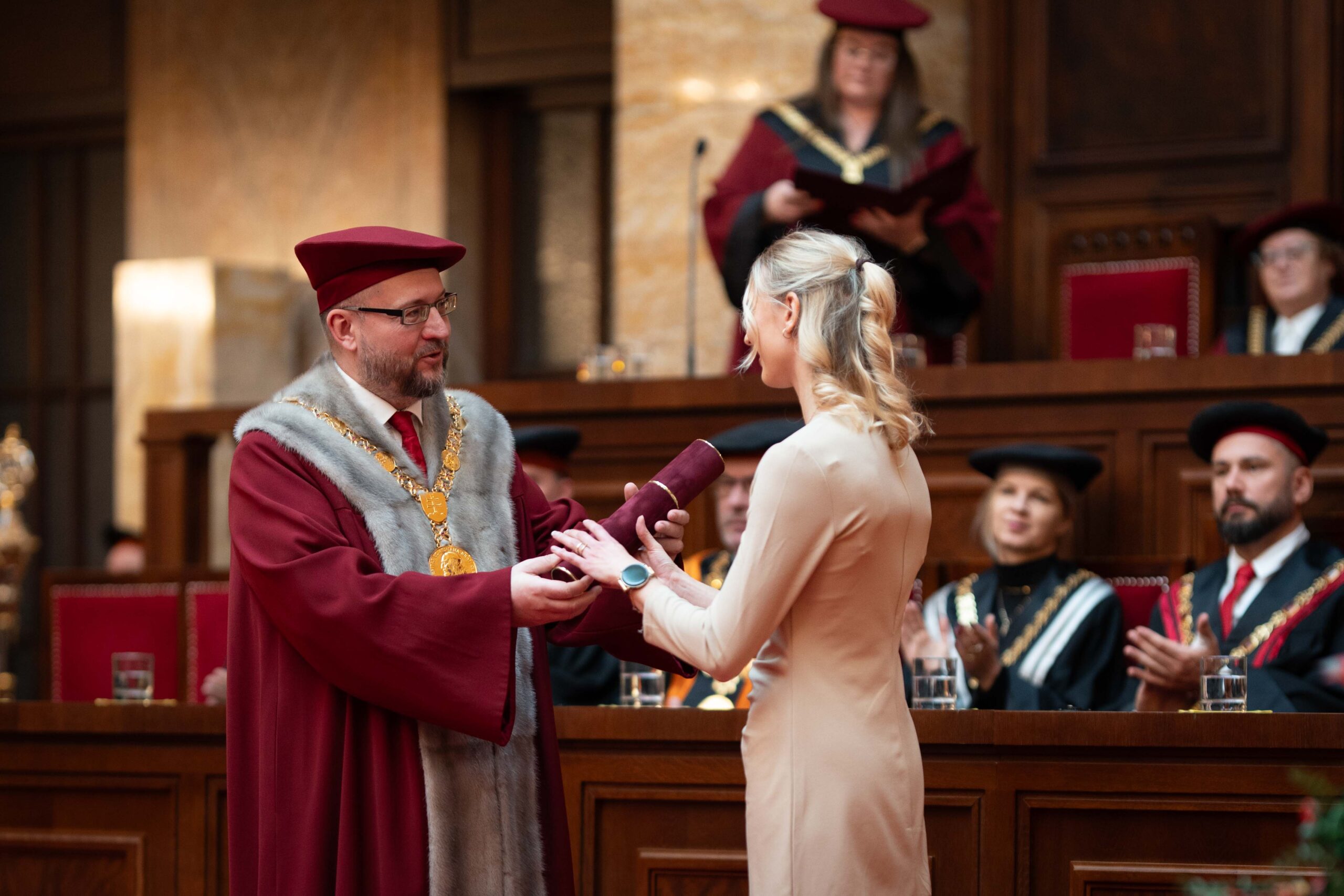The National Coalition for Digital Skills and Occupations of the Slovak Republic (Digital Coalition) successfully completed the twelfth edition of the IT Fitness Test. The level of digital skills has been tested by primary, secondary and university pupils and teachers not only in Slovakia, but also in neighbouring Czechia, Hungary, Poland and Ukraine. Pupils have excelled in working with the internet, with poorer results in critical thinking and complex tasks. Almost 46 thousand respondents from across Slovakia tested their knowledge.
Today’s evaluation of the 12nd edition of the IT Fitness Test, held at Microsoft Slovakia’s headquarters, won awards for teachers, classrooms and selected schools, which were ranked in the dozen best average schools.The largest and most comprehensive testing of digital skills has spread beyond the European Union (EU) this year. Almost 150 thousand respondents tested the level of digital skills in five countries. The test was available in two versions, for primary and secondary schools, as well as in six languages, including English or Ukrainian.“We consider in particular that the success rate in both versions of the tests is above 50 %. There was a slight increase of 3 percentage points in the primary school test, and for respondents over the age of15, we have a growth of up to 5 percentage points,” explains President DK, Mário Lelovský. For the first time, Ukrainian pupils and students located in or outside Ukraine could also be tested for the first time. Slovak pupils succeeded best in testing – they scored higher than those from Czechia, Hungary, Poland or Ukraine in both versions of the test.
As always, during the twelfth edition, testing was free of charge and available online. A version with 20 test questions has been defined for upper-tier primary school pupils. Slovakia achieved an average success rate of 58.17 % in this test, followed by Ukraine (56.04 %), Czechia (53.04 %), Hungary (52.63 %) and Poland (50.84 %). 13240 pocketsaged 7-16 from all over Slovakia participated in testing in Slovakia. “Compared to the previous year, primary school pupils have achieved better results. Primary school pupils in Bratislava region were best served. In total, 684 schools across Slovakia were involved in the testing in the primary school version. This number is extremely happy,” brings us closer to Lelovský.
A set of twenty-five questions have been prepared for secondary and university students, teachers and other respondents in the Internet, Security and Computer Systems, Comprehensive Tasks, Office Tools, Collaborative Tools and Social Networks. Here too, Slovak pupils score best in success (57.17 %). Ukraine (51.24 %), Czechia (49.57 %), Hungary (47.20 %) and Poland (46.67 %) followed. Up to 755 schools across Slovakia participated in this type of testing.
The Prešov Region recorded the best results. “Today’s generation is becoming an architect of the digital future. If we want to fill the 15 thousand ICT cities that we lack, we need to work continuously to increase the digital literacy of pupils and students. Let our young people become not only technology users but creators of innovation that shape the world”, says Richard Raši, Minister for Investment, Regional Development and Informatisation of the Slovak Republic. More than 30 thousand respondents over 15 years of age participated in thetesting. The secondary school version of the test was also addressed by 2540 respondents who stated that they were educators. The aim of the authors is to prepare a test with an overall average success rate of between 50 % and 60 %. In practice, this means that the respondent has high-quality digital knowledge and skills.“We congratulate Slovak pupils on the best results in the region. With the arrival of AI, there is a fundamental change in the way and content of teaching is taking place. It appears desirable to focus on developing critical thinking. I believe that the data available from this test will also contribute to efficient decision-making on Slovak education, which is crucial for the country’s long-term success”,explains Ms. Lenka Axlerová, Head of Education for the Central European Region, Microsof t.
It Fitness Test questions are drawn up annually by the Slovak Copyright Team of Experts. They are practical, focusing in particular on specific skills, reading with understanding, the ability to use acquired knowledge in practice, as well as recent digital trends. The differences in success between the different categories are, according to the authors, quite large. Respondents in the area of internet work were the best performers. On the contrary, reserves were recorded by professionals among pupils and students working with office tools, but also in understanding the work with structured data, working with tables and graphs. Problem areas included addressing more complex tasks, correctly evaluating the text read and understanding the context. “On the basis of the test results, the authors assessed thatml people are more passive consumers of content on social networks. However, this year’s testing clearly shows that the skills tested have slightly improved year-on-year. Although a comprehensive year-on-year comparison is not possible due to the changing number of respondents as well as the test issues, trends remain the same and the need to continue investing capacity in building these skills in both formal and non-formal education”, President DK, Mário Lelovský,is approaching.
Experts agree that respondents should be dedicated to developing critical thinking, evaluating information, assessing its quality, credibility or veracity. The results of the testing can help national governments take action to improve the education system and digital skills. The need to reform the Slovak education system is also highlighted by the latest results of the international PISA measurement, which showed a significant decline in pupils’ performance. Teenagers performed worse in mathematics and reading literacy. Thus, one in three students has not reached a basic level of testing.“The Ministry of Education has long been preparing a reform of the educational content, the so-called ‘curricular reform’. The pilot start of the reform started this school year and we believe it will bring positive results in terms of education for young people. It is not only a matter of improving results in international measurements, but above all for our pupils to understand the content that learns at school and can continue to apply it in the future and further professional life’, explained Slavomír Partila, State Secretary of the Ministry of Education, Science, Research and Sport of the Slovak Republic. “Quality digital skills are essential if we want to manage the digital transformation well. This is not only in terms of managing new technologies, but also in terms of content work. We are pleased that the IT Fitness Test also takes this aspect into account. The correct evaluation of content on social media, critical thinking, the ability to recognise truthful and false information are also crucial for the protection of the democratic values of our society”,adds Ingrid Ludviková, Head of the Press Unit of the European Commission in Slovakia.

Saznaj više
-
Digitalna tehnologija / specijalizacija:
Digitalne vještine
-
Razina digitalnih vještina:
Osnovno
Srednja
Napredno
-
Geografski opseg - Država:
Slovačka
Češka Republika
Poljska
Mađarska
Ukrajina
-
Vrsta inicijative:
Međunarodna inicijativa




